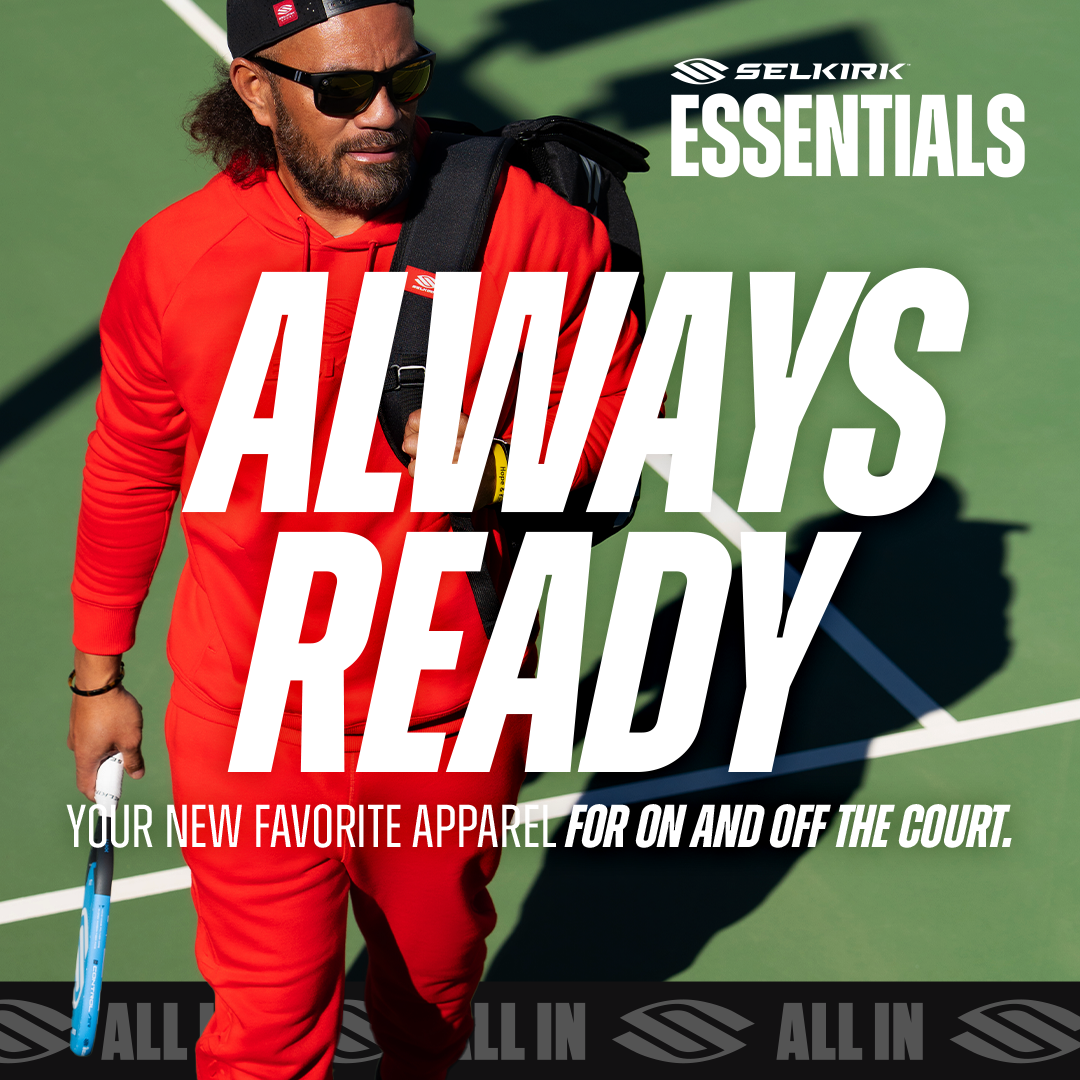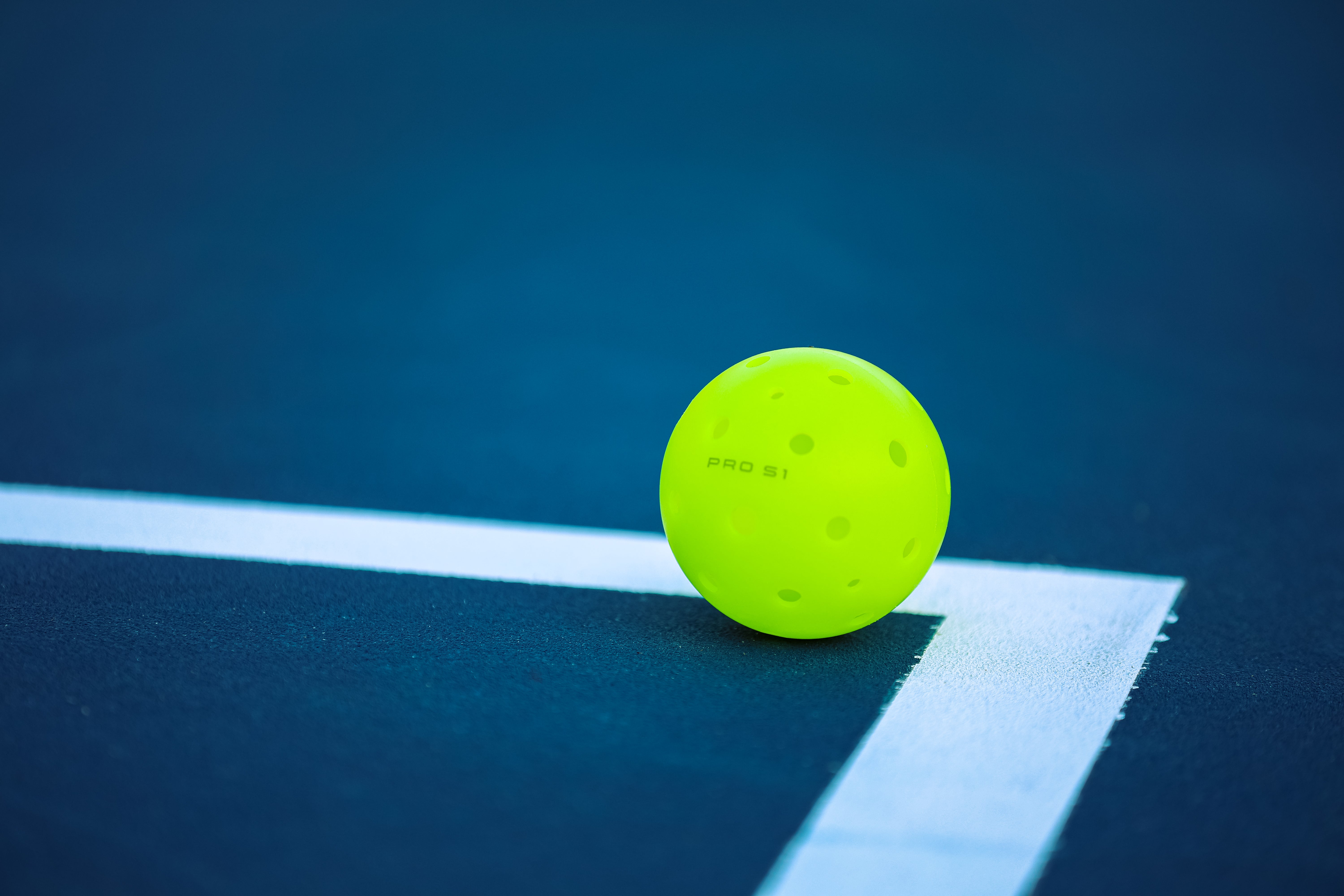In recreational pickleball, court etiquette is just as important as gameplay. One habit every regular player should know is how to properly call "ball on."
If you're not sure whether you're doing it right, or if you've been annoyed when others have called it unfairly, this guide is for you.
What does it mean to call "ball on" in pickleball?
Calling "ball on" is a way to alert players that a ball has rolled onto your court or is interfering with active play. It signals that play should immediately stop to avoid injury or confusion.
A ball from another game, or even a rogue ball from your match, can create a dangerous situation. Calling "ball on" helps maintain safety and fairness.
What should I do when my opponent calls "ball on"?
When your opponent calls "ball on," you should immediately stop play — even if you were about to win the point. Safety always comes first.
Typically, the rally is replayed after a "ball on" call. There is no winning or losing point once the call is made. It’s simply a replay without penalty.
When should I call "ball on" in pickleball?
You should call "ball on" anytime a ball rolls onto your court or into your immediate playing area. Also, call it if a ball could pose a tripping hazard or cause a distraction. Being proactive keeps everyone safe and ensures the match stays fair.
Here are some good examples of when to call "ball on":
-
A ball rolls onto your side of the court.
-
A ball is rolling along the sideline and could enter the court.
-
A ball is directly behind you or your partner.
- A ball rolls onto the court behind your opponents.
When is calling "ball on" too much?
While safety is important, overusing "ball on" can be disruptive. Avoid calling "ball on" for balls that are not remotely affecting play, such as:
-
A ball that's completely out of the way (like a ball that is rolling near a fence behind the court).
-
A ball that is stationary and not creating a tripping hazard.
If you’re calling "ball on" multiple times a game for minor distractions, it can frustrate opponents and partners alike. Use your best judgment — reserve the call for real safety concerns.
What to do if your opponent calls "ball on" unfairly
Sometimes, an opponent may call "ball on" at a suspicious time, like right after you hit a winning shot. If this happens, keep your composure.
The standard etiquette is to replay the point regardless of timing. However, if unfair calls become a pattern, you can:
-
Politely address it between points: "Hey, I noticed there have been a few questionable ball-on calls. Can we be a little stricter?"
-
If it's a tournament, bring it up with the referee.
Staying calm and respectful is key to maintaining a good playing environment.
What should I do when I send a ball to another person's court?
If your ball goes onto another court, you should immediately call "ball on" loudly and clearly. Then:
-
Wait for play on that court to stop before retrieving your ball.
-
Never step onto another court during active play, even if you think you can grab your ball quickly.
-
Apologize briefly if needed, but don’t cause a bigger disruption by over-explaining.
Respecting other players' space is part of being a courteous pickleball player.
Additional tips for good "ball on" etiquette
-
Use a loud, clear voice: Whispering "ball on" doesn’t help anyone. Be assertive so everyone hears you.
-
Avoid arguing: If someone calls "ball on," respect the call without debate. It's about safety first.
-
Be quick and efficient: Retrieve the ball swiftly and resume play without unnecessary delay.





























































